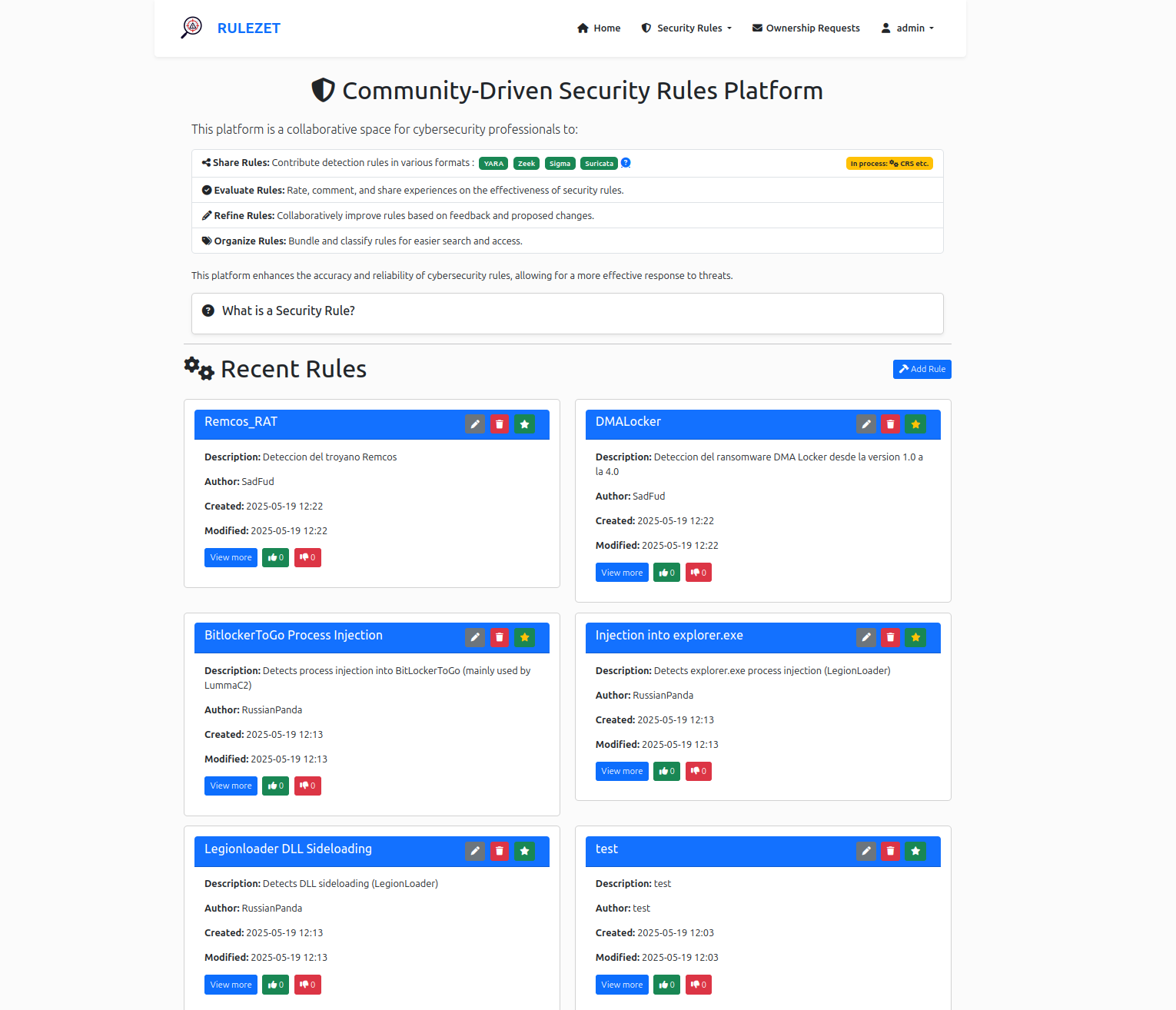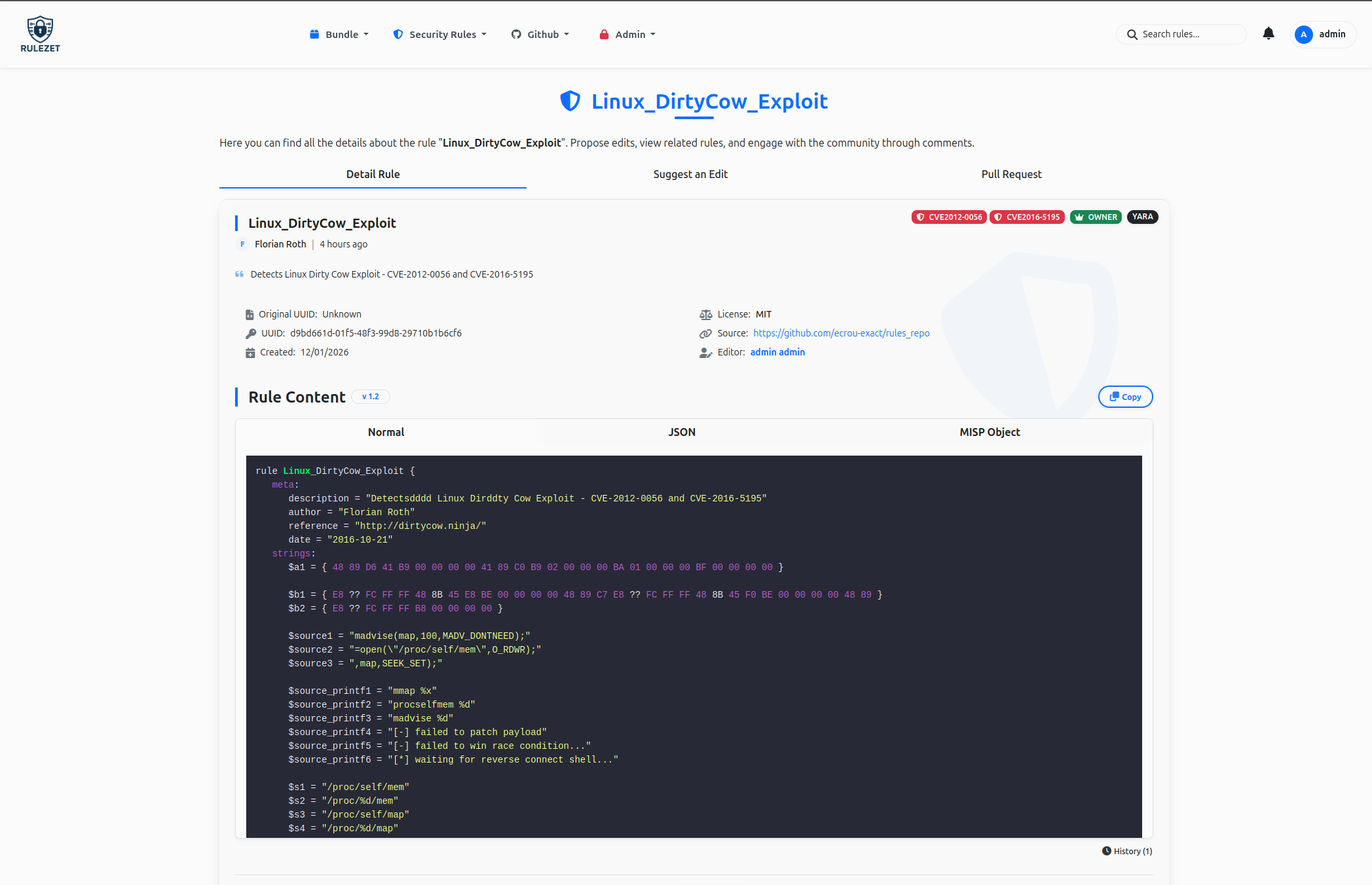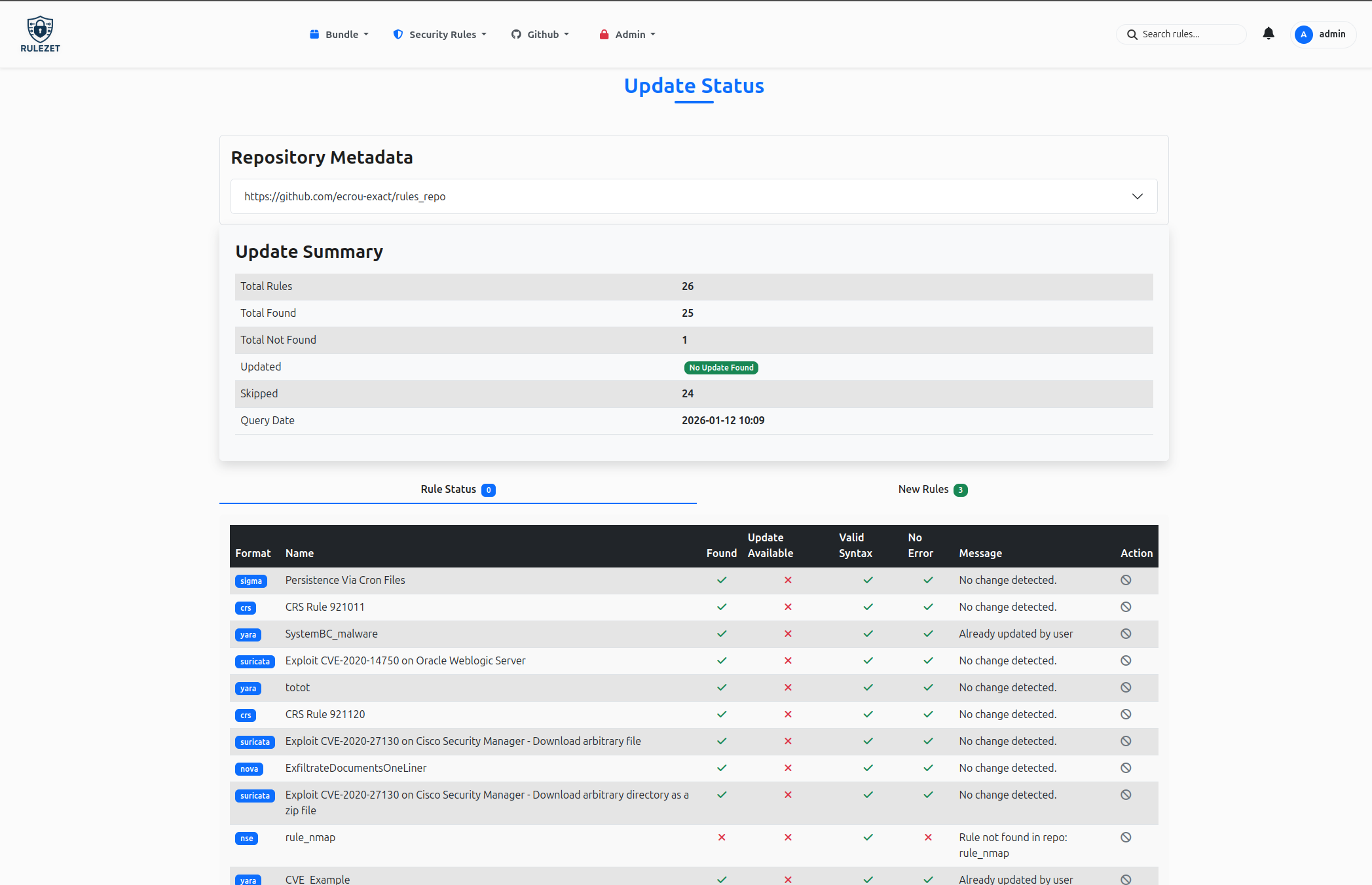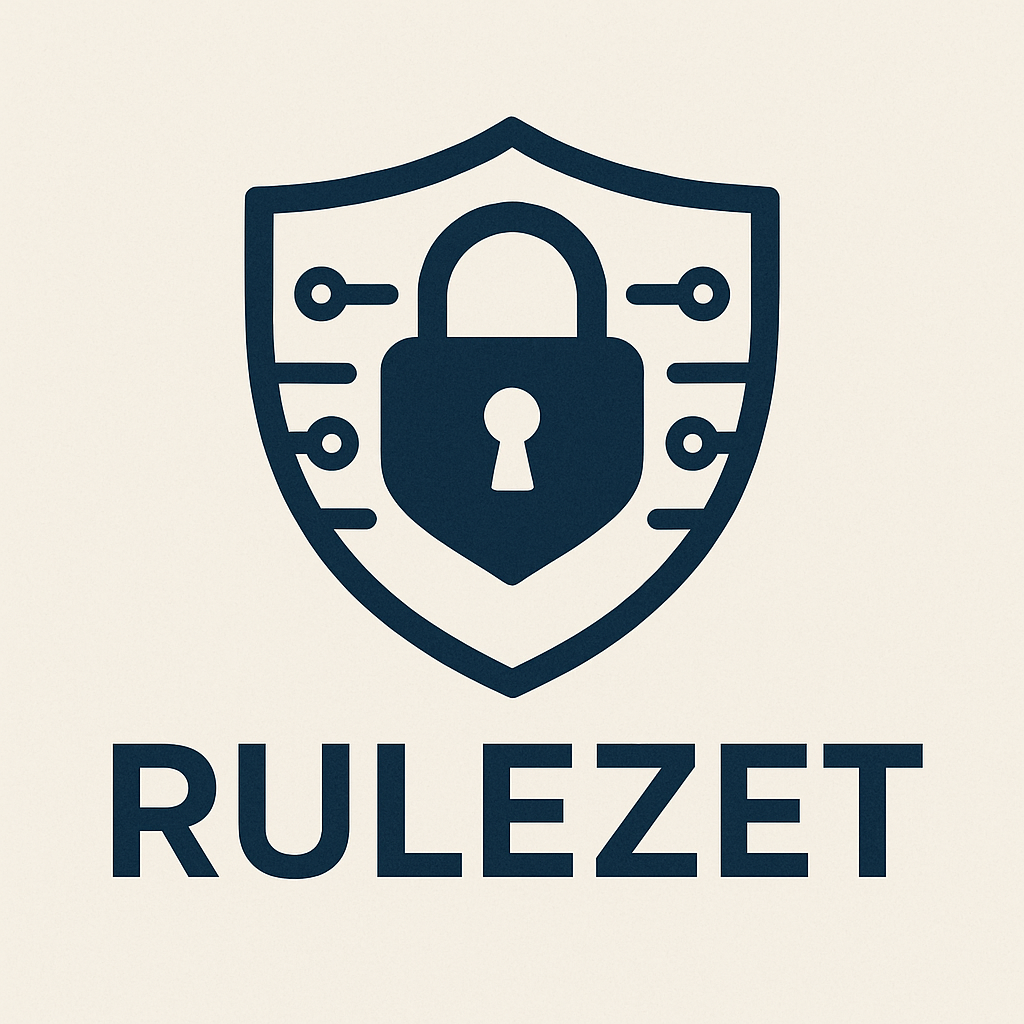Rulezet is an open-source web platform for sharing, evaluating, improving, and managing cybersecurity detection rules (YARA, Sigma, Suricata, etc). It aims to foster collaboration among professionals and enthusiasts to improve the quality and reliability of detection rules.
Rulezet is available as an online service at the following address https://rulezet.org/
This project is built with:
- Flask (Python)
- Vue.js 3
- Flask Blueprints
- Flask-Login (Authentication)
- Flask-SQLAlchemy (ORM)
- PostgreSQL (Database)
It is strongly recommended to use a Python virtual environment.
./install.shAt the beginning, password and api Keys are generate to security reason
====================================================================================================
✅ Admin account created successfully!
🔑 API Key : xxxxxxxxxxxxxxxxxxxxxxxxxxxxxxxxxxxxxxxxxxxxxxxxxxxxxxxxxxxx ( Unique secret key )
👤 Username : admin@admin.admin
🔐 Password : xxxxxxxxxxxxxxxxxxxxxxxxxxxxxxxxxxxxxxxxxxxxxxxxxxxxxxxxxxxx (⚠️ Change it after first login)
====================================================================================================
You should change the password after the first connection
./launch.sh -lThe platform includes a wide set of functionalities to manage and collaborate around detection rules:
- Admin panel to manage users
- Favorite rules for users
- Create, Edit, and Delete rules
- Assign ownership to rules
- Powerful search bar and rule filtering
- View detailed rule and download or copy it
- Propose modifications to existing rules via pull-request style edits
- Evaluate rules to identify the most effective ones
- Comment and discuss arround the rules
- Import detection rules directly from public GitHub repositories
- Automatic validation of imported rules
- Display and manage invalid or malformed rules
- The most important feature to enhance user comfort while working in different environments 😉.
New rule formats may be added over time.
If you want to propose a new format, feel free to open an issue on our GitHub.
Currently, the supported rule formats are:
- yara
- sigma
- zeek
- suricata
- crs
- nova
- elastic
- no format
| Homepage | Rule Detail | Rule Management |
|---|---|---|
 |
 |
 |
RULEZET provides a RESTful API to allow seamless integration and automation of key processes such as rule creation, importation, account management, and more.
You can access the interactive API documentation using the following URL:
http://127.0.0.1:7009/api/rule/doc/– Manage detection rules (create, update, delete, import, etc.)http://127.0.0.1:7009/api/account/doc/– Manage user accounts (registration, login, etc.)
- Automate rule import/update from GitHub or local sources
- Create and update rules programmatically
- Manage user accounts and permissions via scripts or clients
- Integrate RULEZET into your CI/CD or SOC pipeline
With this API, developers and analysts can save time, reduce errors, and streamline workflows — all while ensuring full compatibility with RULEZET's internal engine.
Tip: Use tools like cURL to interact with the API and test endpoints easily.
This internship offers a unique opportunity to contribute to the development of a cutting-edge, open-source platform: a community-driven website designed for sharing, evaluating, and refining security detection rules. These rules, which are critical for identifying threats in cybersecurity, currently lack a central place for community validation. This project addresses that gap by creating a collaborative space where users can:
- Share Rules: Contribute detection rules in various formats (YARA, Sigma, Suricata, and others), allowing for broad community access.
- Evaluate Rules: Rate and comment on the effectiveness of rules, report false positives, and share practical experiences.
- Refine Rules: Participate in the collaborative improvement of rules through feedback and proposed changes, enhancing their accuracy and reliability.
- Organize Rules: Bundle rules into logical sets and classify them using tags and categories, improving searchability and usability.
Interns will play a key role in developing the website’s features and functionalities. This will involve implementing core features, exploring integrations with other security tools such as MISP and Suricata, and assisting in the development of a security rule data model for a standardized format to facilitate easy exchange. Interns will gain hands-on experience in open-source software development, web development, and practical cybersecurity applications.
This project offers a chance to make a real-world impact by improving the way security professionals interact with essential threat detection information. You will gain exposure to web development, APIs, data modeling, and security knowledge.
This project is inspired by Ptit Crolle, and takes it further with a modern UI, collaborative features, and integration capabilities.
We welcome contributions from the community. You can:
- Submit pull requests for new features or bug fixes
- Suggest enhancements via GitHub Issues
- Help expand supported rule formats
This software is licensed under GNU Affero General Public License version 3
Copyright (C) 2024-2025 CIRCL - Computer Incident Response Center Luxembourg
Copyright (C) 2024-2025 Theo Geffe
Rulezet is co-funded by CIRCL and by the European Union under FETTA (Federated European Team for Threat Analysis) project.


